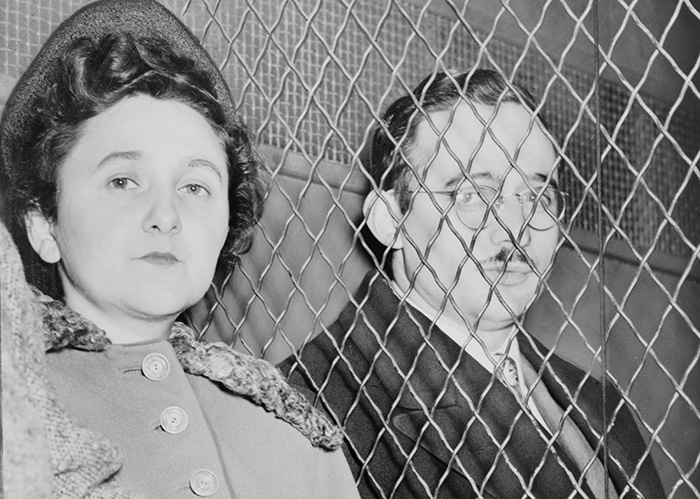
In one of the most riveting episodes of Cold War America, Julius and Ethel Rosenberg were convicted of espionage, a charge stemming from accusations of passing atomic secrets to the Soviet Union during and after World War II.
Their trial was not just a legal proceeding but a spectacle that captivated and polarized the nation. Following their conviction, the couple was sentenced to the ultimate punishment—death by electric chair in 1953.
This marked them as the only American civilians executed for espionage during the Cold War, a fact that remains a point of contention and debate regarding the fairness of their sentence.
The case against the Rosenbergs was triggered by the 1950 arrest of Klaus Fuchs, a British physicist who had worked on the atomic bomb project in both the UK and the US.
Fuchs’s confession of passing secrets to the Soviets set off a chain reaction leading to the arrest of several individuals, eventually ensnaring the Rosenbergs.
Fuchs identified American Harry Gold as his liaison with Soviet agents, who in turn implicated David Greenglass, Ethel Rosenberg’s brother.
Greenglass confessed to his own spying activities and accused his sister Ethel and her husband Julius of orchestrating the espionage network. Their arrests in 1950 were sensational news, reflecting the era’s intense anti-communist sentiment.
The trial, which began on March 6 and concluded with convictions by March 29, was swift by today’s standards.
The prosecution’s case hinged heavily on the testimony of Greenglass and Gold, with Greenglass claiming Julius Rosenberg arranged for him to pass atomic bomb plans to Gold, who then allegedly delivered them to the Soviets.
Despite the scant evidence directly linking Ethel to the espionage, she was portrayed as the mastermind behind the operation.
The defense’s ineffective strategy and the emotionally charged atmosphere of the trial did little to sway the jury’s guilty verdict.
Following their conviction, the Rosenbergs were sentenced to death, a decision executed on June 19, 1953, in New York’s Sing Sing Prison.
The couple’s insistence on their innocence until the end did nothing to quell the controversy that surrounded their case.
Internationally, their execution was met with widespread criticism and was emblematic of the era’s paranoia and fear of communism.
Figures like Jean-Paul Sartre decried their death as a “legal lynching,” while supporters argued that the Rosenbergs were unjust victims of Cold War hysteria.
Critics of the verdict contended that even if the Rosenbergs had shared information with the Soviets, it was at a time when the USSR was an ally, not an adversary, of the US.
However, proponents of the sentence maintained that the couple deserved their fate for compromising national security by providing the Soviet Union with the means to create a devastating weapon.
The Rosenberg case remains one of the most controversial and tragic tales of the Cold War, encapsulating the fear, suspicion, and tension of an era.
